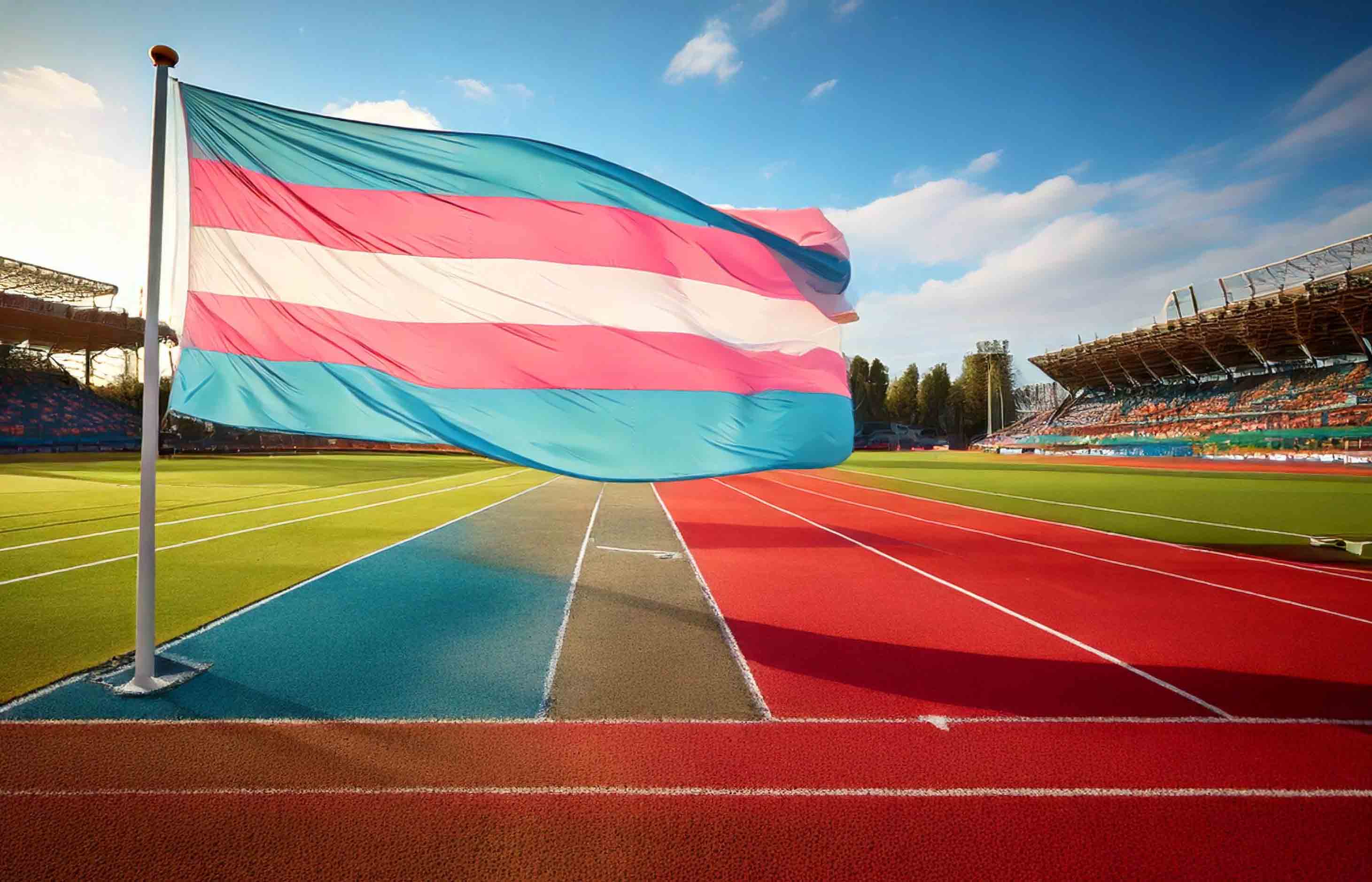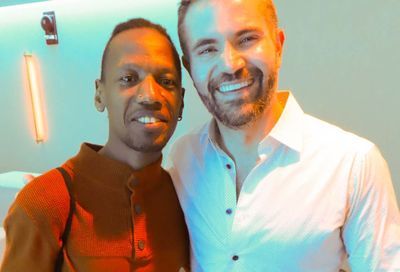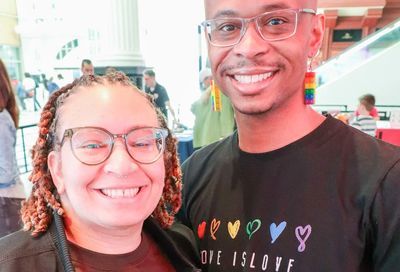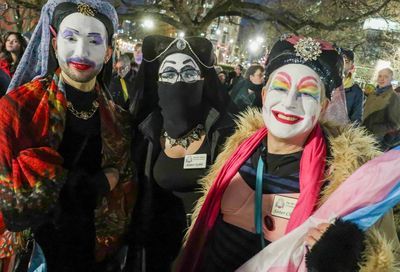Idaho May Ban Public Drag Shows
Bill would prohibit drag performances in public venues, with proponents claiming a ban is necessary to protect children.

Idaho lawmakers are expected to vote next year on a bill that would ban drag performances in all public venues in the state.
Set to be introduced in the first days of the next session of the Idaho Legislature in January, the bill is being pushed by the Idaho Family Policy Center.
The group’s president, Blaine Conzatti, told the Idaho Capital Sun that the bill is ready to be introduced, but refused to publicly share its text or name which legislators he worked with to draft the bill.
“No child should ever be exposed to sexual exhibitions like drag shows in public places, whether that’s at a public library or a public park,” Conzatti told the newspaper.
Conzatti and other activists around Idaho have protested against events in public spaces that feature drag queens, including “Drag Queen Story Hour” events at public libraries.
In September, Idaho Republican Party Chairwoman Dorothy Moon successfully called for people to pressure corporate sponsors of Boise Pride to pull their sponsorship of the event due to a scheduled “Drag Kids” performance for children aged 11 to 18, which was ultimately postponed due to concerns over the safety of performers.
Conzatti cited a drag performance in Coeur d’Alene in June as an example of “public indecency” that justifies the need for a ban on drag performances. Outrage ensued after a right-wing blogger posted a video to Facebook accusing the performer of having exposed himself during a Pride in the Park event.
However, the local prosecutor’s office later determined, upon seeing unedited video footage of the performance, that the Facebook video had been edited in a way to make it appear as if the performer had exposed himself, when he had not.
That performer has since filed a defamation lawsuit against the blogger, reports the Coeur d’Alene Press.
In the run-up to Boise Pride in September, the Idaho Family Policy Center had circulated a petition asking state lawmakers to prohibit drag performances in public places, which garnered more than 3,500 signatures.
The group also marshaled its followers to send more than 26,000 emails blasting the corporate sponsors of Boise Pride for supporting an event that included drag performances.
Conzatti justified the petition by citing a centuries-old section of the Idaho Constitution that states that the first concern of all good government “is the virtue and sobriety of the people, and the purity of the home,” and recommends that the Legislature should “further all wise and well directed efforts for the promotion of temperance and morality.”
“There were many Supreme Court decisions from the 19th century dealing with public virtue and how sexual practices should not take place in public because it degraded public virtue,” Conzatti, who calls drag a sexualized caricature of gender comparable to blackface, told the Capital Sun.
But Boise resident Crispin Gravatt, a drag performer better known as Penelope Windsor, says that drag is, at its core, a form of artistic expression.
“For me and for my friends, it’s kind of like art therapy, the same kind of thing we see with veterans or abuse survivors,” they said. “It’s a way we can find joy and work through some of the challenges in a world that can be challenging at times for people like me.”
Gravatt says part of the outcry over drag, including that it is inherently “sexual,” is based on misinformation being spread by opponents of gender-nonconformity and those hostile to the LGBTQ community.
“It’s a little insulting that these folks think people like me don’t know how to act appropriately for where we’re at,” Gravatt said. “In my experience being in this community performing, producing, going to shows, and just celebrating who I am and who my community is, it’’ weird to see that such a small group of people has made it so far in what they are trying to do, because 99% of people I meet all over the state — they think it’s a either a fun creative outlet or something that may not be for them, but isn’t a threat.”
Boise Pride Executive Director Donald Williamson says he believes a bill to ban a certain type of performance would be a violation of free speech laws.
“It’s just wrong on so many levels,” he told the Capital Sun. “If you don’t agree with the performances, then you don’t go. It’s just like any other venue. It’s why I don’t go to country music concerts; it’s not my cup of tea.”
Williamson, who previously worked as a bartender at a drag club in Oregon, also disputed the notion that drag is inherently sexual or harmful to those who view drag shows.
“[Drag] was meant as a means of expressing your identity that maybe you didn’t have the ability to do in your public life, as a form of expression and empowerment,” he said.
“Obviously like any other form of entertainment, there’s going to be some sexualizing in one way or another. … There’s a difference between a drag show that you and I might see if we decided to go see a drag show on a Friday or Saturday night with a cover charge, versus a drag show on a Sunday afternoon at a park in front of the public.”
MSNBC guest opinion columnist Katelyn Burns noted, in a recent column examining the Idaho bill, that much of the angst around drag has been a reaction to events like Drag Queen Story Hour, in which drag performers read children’s books to kids.
Opponents of such events believe that they are being used to “indoctrinate” or “groom” children into embracing gender-nonconformity or transgender identity. Right-wing social media accounts frequently report that an event involving drag queens is happening, and local conservative groups or anti-LGBTQ groups will show up to disrupt the event and intimidate attendees.
“Though we don’t have its text and the Idaho Family Policy Center is being secretive about its potential sponsors, this bill should deeply concern anyone who cares about LGBTQ rights. Bans on public drag have historically been leveraged to police the gender presentation of queer and trans people,” Burns wrote, drawing parallels between the bill’s proposed restrictions and the circumstances surrounding gay bars and the enforcement of anti-crossdressing laws in the lead up to the Stonewall Uprising in 1969.
“The Idaho Family Policy Center and conservatives all over the country want to take us back to that time, and we shouldn’t miss that a state’s potential ban on public drag is the most crucial step in the process,” Burns added. “LGBTQ people, liberals and independents need to stop humoring conservative extremists and say enough is enough. If we don’t do that now, we’re going to end up with another Stonewall, this time in Boise.”
Support Metro Weekly’s Journalism
These are challenging times for news organizations. And yet it’s crucial we stay active and provide vital resources and information to both our local readers and the world. So won’t you please take a moment and consider supporting Metro Weekly with a membership? For as little as $5 a month, you can help ensure Metro Weekly magazine and MetroWeekly.com remain free, viable resources as we provide the best, most diverse, culturally-resonant LGBTQ coverage in both the D.C. region and around the world. Memberships come with exclusive perks and discounts, your own personal digital delivery of each week’s magazine (and an archive), access to our Member's Lounge when it launches this fall, and exclusive members-only items like Metro Weekly Membership Mugs and Tote Bags! Check out all our membership levels here and please join us today!






















You must be logged in to post a comment.